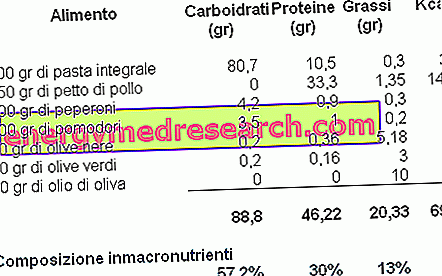Definition
Biliary colic is a sudden onset cramp-like pain that originates in the right hypochondrium, located laterally in the upper part of the abdomen, just below the ribs.
Being a pain of colic type, it occurs in the form of acute attacks that are repeated several times over several hours, interspersed with moments of stillness.
This symptom is generally caused by a pathological process at the level of the biliary tract (calculosis or inflammation).
Biliary colic in the presence of stones
In most cases, spasms resulting from distension or contraction of the gallbladder (or gallbladder) and biliary tract are due to the presence of stones that hinder the passage of bile (the thick, dark liquid produced by the liver and retained in the gall bladder, essential to digest fats and prevent food putrefaction in the intestine).
Colic is particularly intense when these small agglomerates formed by cholesterol, bilirubin crystals and calcium salts are wedged into the common bile duct.
Biliary calculosis or cholelithiasis is often a consequence of acute cholecystitis, that is an inflammation of the gall bladder. This causes severe abdominal pain, nausea, vomiting, fever and, sometimes, jaundice (yellowish complexion of the skin and sclera of the eyes).
Biliary colic occurs more frequently during the night, especially after having eaten large, fat-rich meals: the gallbladder contracts more intensely than usual, pours into the intestine a greater quantity of bile and mobilizes the present calculations. These flow along the bile ducts along with the liquid, which fails to flow into the intestine. The person is caught, therefore, by violent spasms, which can also radiate to the right scapula and chest (unlike renal colic, whose pain is descending).
This event typically lasts a few hours and ceases with the elimination of the calculation. If the latter remains blocked and the bile fails to flow, the jaundice associated with dark and turbid urine appears. Sometimes, colic is associated with biliary vomiting and urinary disorders.
Biliary colic in the absence of stones
A biliary colic can occur without calculations in the gallbladder. This manifestation is found mainly in young women and is often associated with organic or functional disorders of the gastrointestinal tract.
The most common causes include abnormal gallbladder depletion, hypersensitivity of the biliary tract and / or the adjacent duodenum and sphincter dysfunction of Oddi.
Possible Causes * of biliary colic
- Liver Calculations
- Gall bladder stones
- cholangiocarcinoma
- cholecystitis
- Alitiasic cholecystitis
- Spherocytosis



